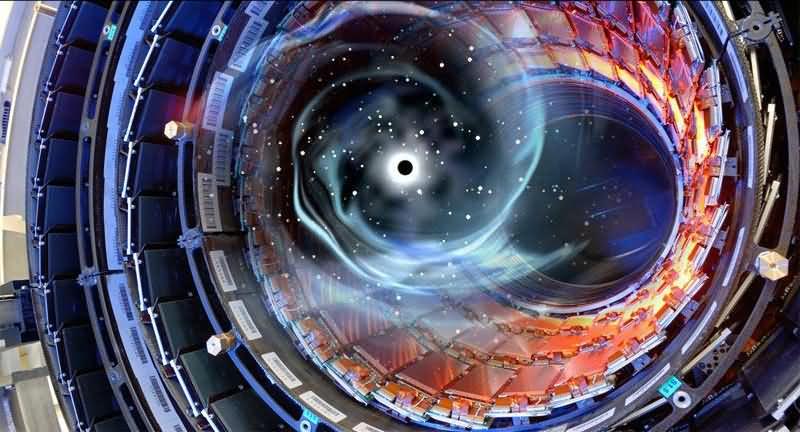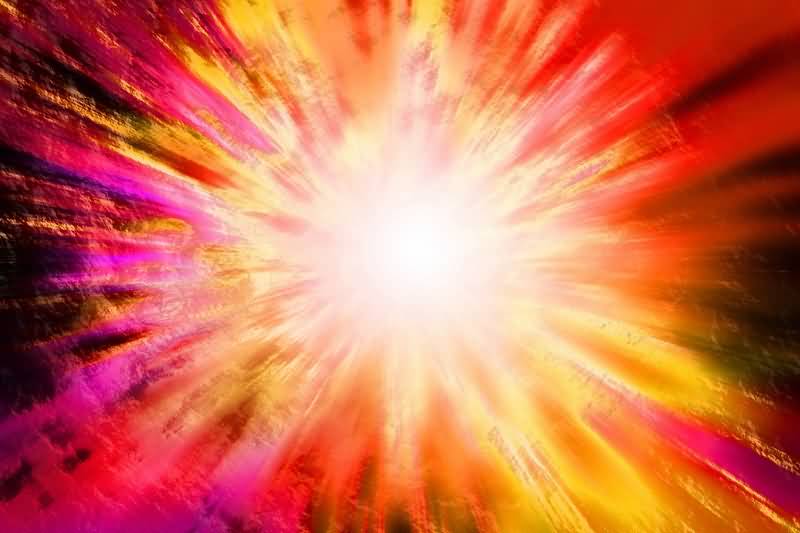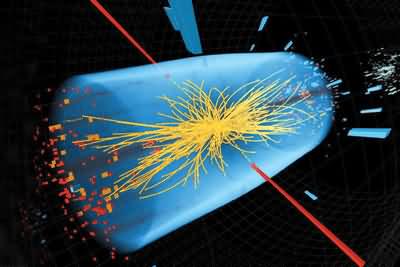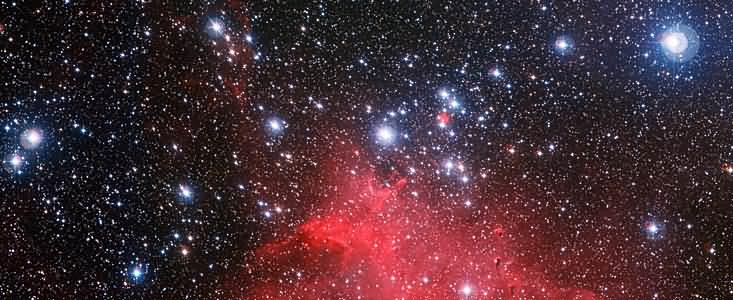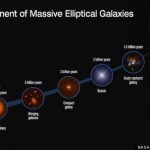Possible Endings of the Universe
If there's one topic scientists love to debate besides the universe's beginning, it's the universe's potential endings (of course, there are things like the theory of everything, but whatever). There are actually plenty of events that could end life on Earth before we even realize what's happening, like the recent meteor that hit Russia, but the end of the universe is a different story. The end of the universe is actually more difficult and unpredictable than the end of the world, but that won't stop us from making predictions, especially for conspiracy theorists (-_-). Anyway... First, to make a realistic interpretation of the end of the universe, we need to know the following.
- The general shape of the universe.
- The density of the universe.
- How much of the universe is actually made up of dark energy.
1- Major Tearing

In this picture, which shows the stages of the Big Rip, you can see what happened at each stage and what happened at the end of the universe.
If you're even slightly interested in astronomy, you're likely familiar with dark energy and its impact on the expansion of the universe. Because of dark energy, the universe is expanding at an accelerating rate. One day, this expansion will reach a point where galaxies, stars, planets, and even atoms will no longer be able to hold themselves together and will break apart. This is called the Big Rip. The full explanation is as follows: If the density of the universe is less than what we call the critical density, the universe will continue to expand forever, reaching very high speeds, and the event we just described will occur. Of course, if this density exceeds the critical density, I don't need to mention that the universe will collapse in on itself. According to Robert Caldwell of Dartmouth College, if this event occurs, it will occur approximately 22 billion years after the Big Bang. By this time, the Sun will have exhausted its hydrogen fuel and entered the red giant phase. If we survive until then, the Earth will have disintegrated exactly 30 minutes before the grand finale, he says.
2- The Big Freeze
In this scenario, our theory takes shape according to the nature of dark energy, and the universe continues to expand as in our previous theory. Galaxies are rapidly moving away from each other at ever-increasing speeds, but no tearing occurs. At the same time, the heat in the universe is dissipated in the same way as this separation. The universe gradually cools and cools, eventually dropping to absolute zero, rendering the universe incapable of any work. Of course, as the gases and nebulae necessary for star formation in the galaxies are depleted, all stars gradually fade, and the production of new stars ceases. Losing this source of light, we face a dark and cold universe. At this point, the universe has reached maximum entropy. This is considered the most plausible end-of-the-universe theory by both me and many scientists.
3- The Great Collapse
This model is seen as the exact opposite of the Big Rip. After a very long time (most likely trillions of years), if the density of the universe exceeds the critical density, the expansion will slow to a halt. Then, the universe will begin to contract, collapsing in on itself. Ultimately, it will return to the singularity of the Big Bang. Ironically, something like this may have happened before. Some scientists have suggested that the Big Bang was a periodic cycle, with the universe re-collapsed after each expansion, periodically reliving the Big Bang. You could call this the universe's inhalation and exhalation. The Big Crunch can be seen as inhaling and exhaling, while the Big Bang remains exhaled. However, ever-increasing entropy prevents this from happening beyond a certain limit.
4- Big Slurp
I couldn't quite translate this model. Slurp means to drink while frothing, to slurp. However, our model has nothing to do with that.
Going back to our model, we can say that this is the newest and strangest of them all. First of all, it was in 2013. Higgs bosonI'm sure you've heard about its discovery. Even unrelated people on our channels attempted to discuss it!... This model, in short, is that if the Higgs boson is very heavy and our universe is nothing more than a bubble created by quantum fluctuations, our universe will be in a very unstable state. Even the slightest change in the Higgs boson's mass will increase the mass of everything in the bubble it created millions of times. This will cause our universe to expand at the speed of light, and it may even be expanding. If this happens, we will be destroyed before we even realize it, due to the speed of light limit. This is because such an increase in mass will cause the universe to collapse in on itself. I have a more detailed article on this. His name is The Universe Could Collapse At Any Moment! Maybe Tomorrow.

